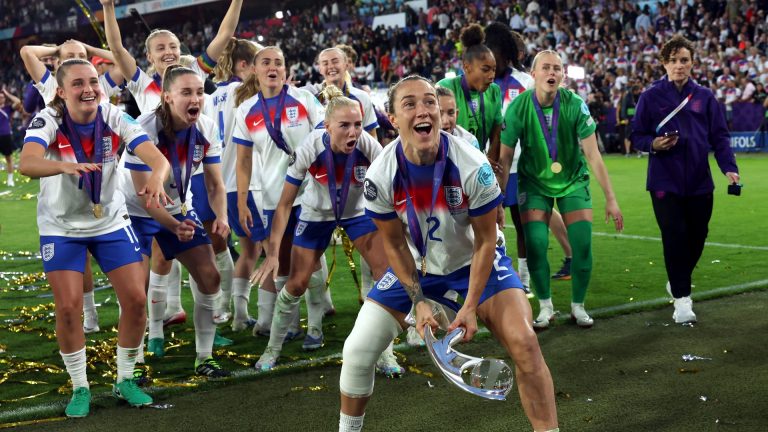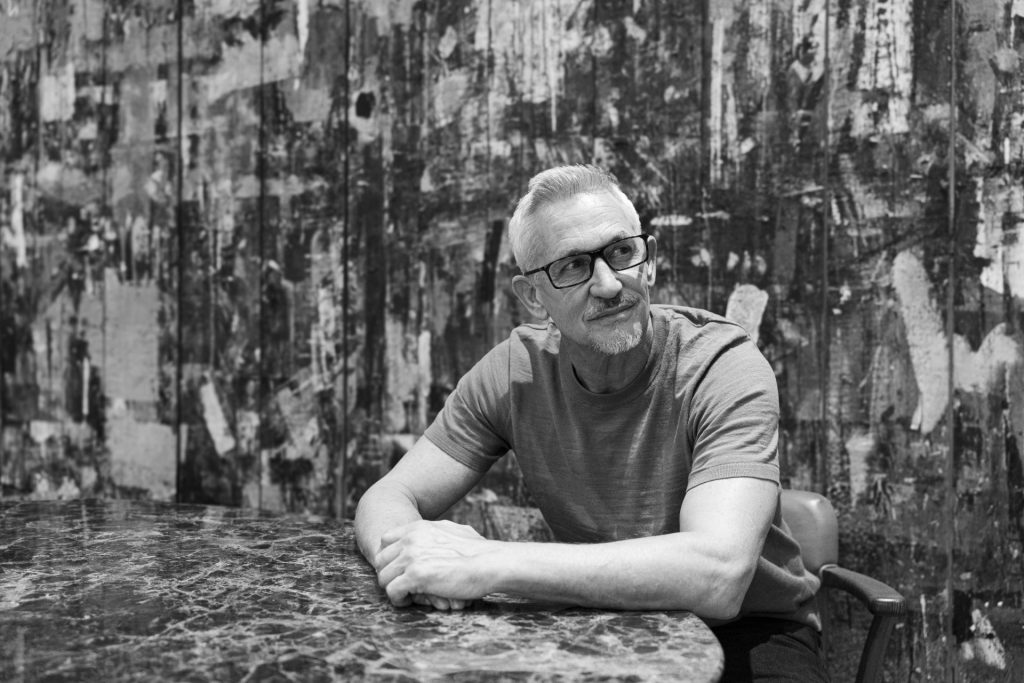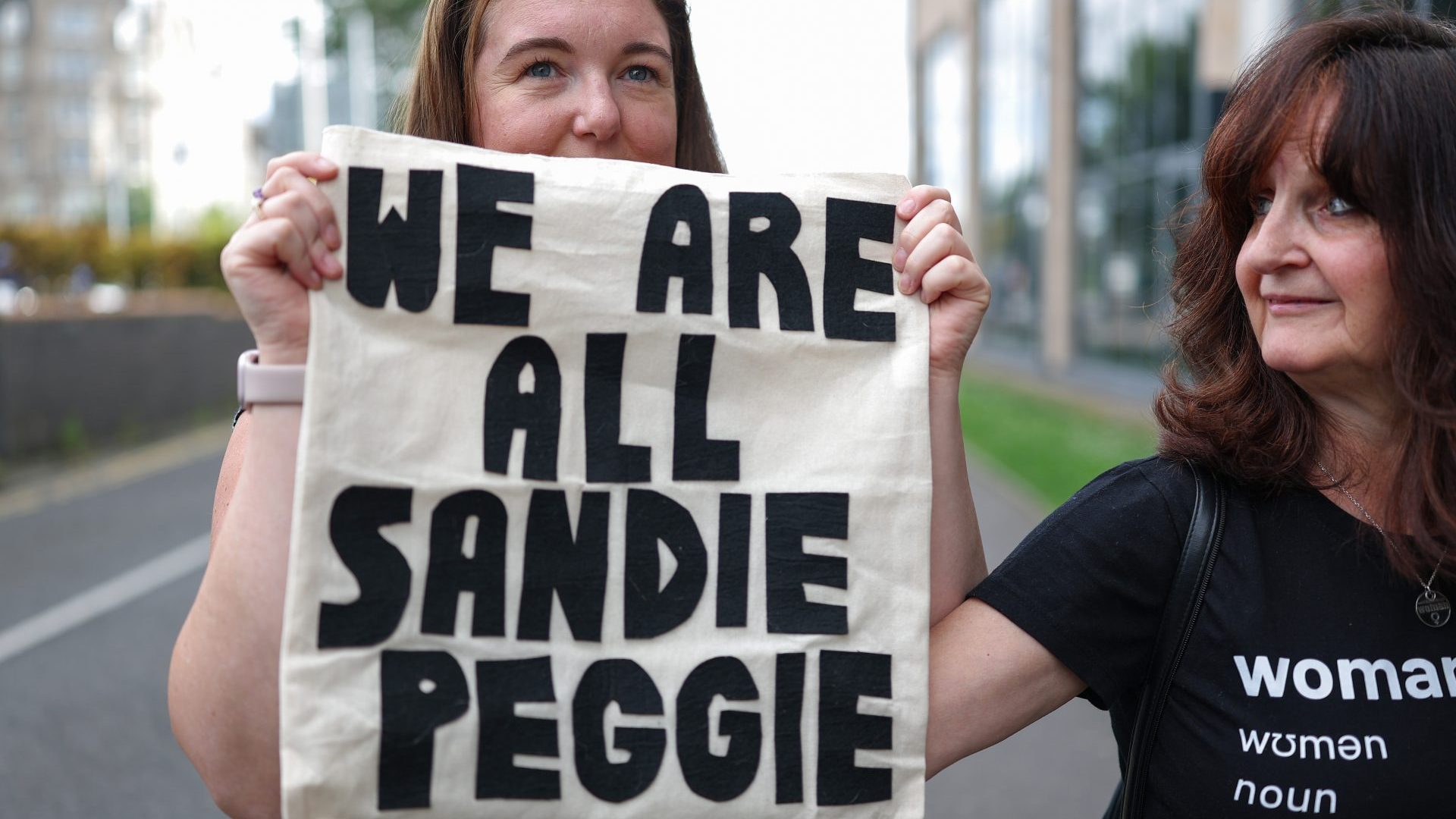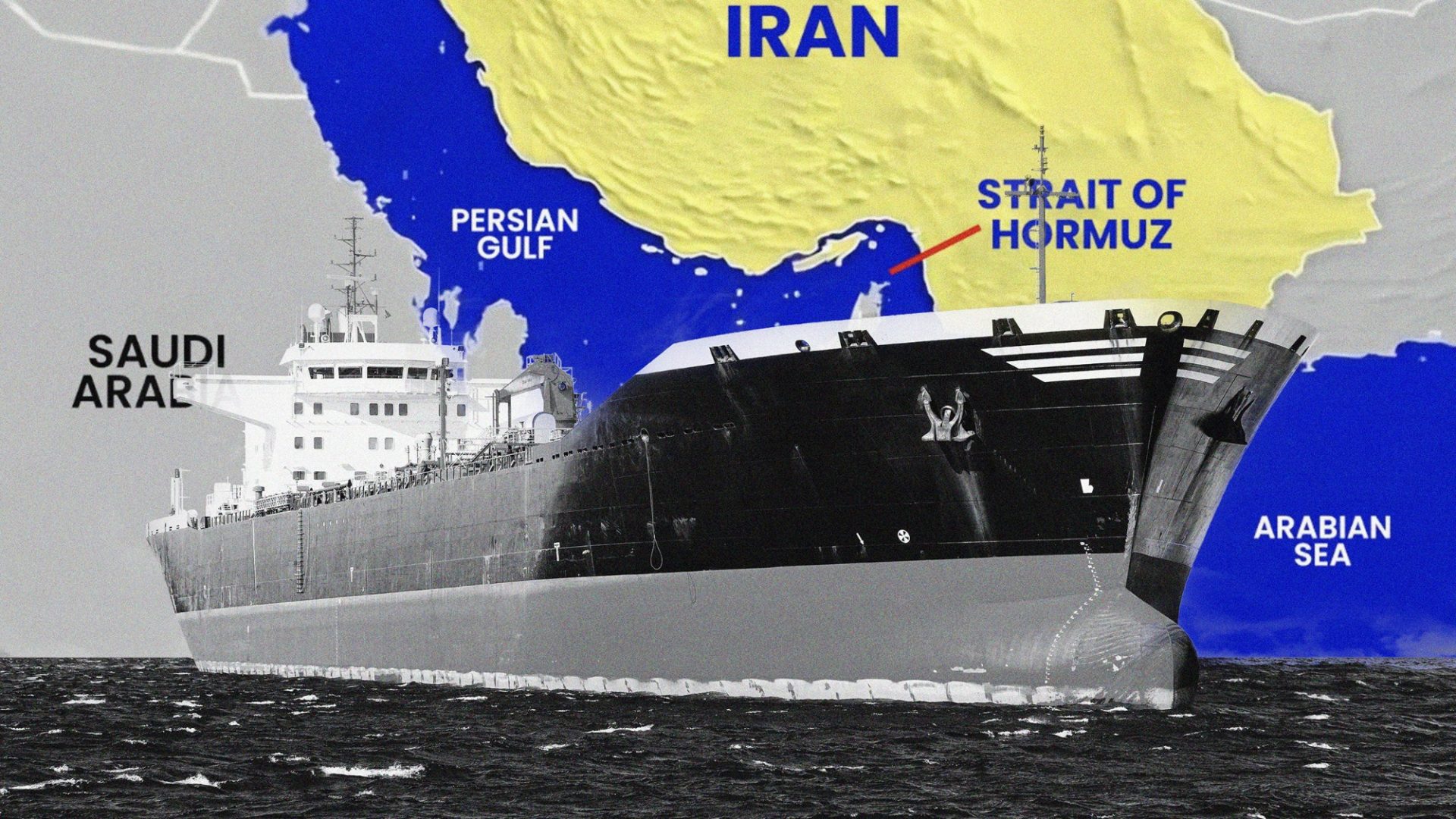As a striker, positioning was his gift. Famously never cautioned as a footballer, this year Gary Lineker was sent off as the face of BBC Sport for the political positions he took on social media.
Now, after a few months in which the dust has settled, he wants to talk about it.
Lineker, 64, a long-time New European and now New World subscriber, invited me to his home in Barnes, west London following my cover story five weeks ago, “Meanwhile, in Gaza”, reporting the increasingly desperate famine faced by Palestinian children. It’s his first interview since quitting – or being fired from (more of that later) – the BBC after a broadcast career of 30 years.
We talk for an hour and a half in his kitchen while his Los Angeles rescue dog Filbert snuffles around my recording device, rendering the audio useless for a podcast as I’d hoped.
I’m not suggesting our Two Matts podcast is any threat to Lineker’s The Rest Is Politics (15 million downloads a month, the bastards), but if the goal was to stitch up a competitor, Filbert is a straight-up pro.
Two Gary Linekers emerge in this wide-ranging interview, clearly demarcated by his body language. One is the Lineker familiar to his millions of television fans. Talk about the BBC, the crisis of lost young men in British society, the whirlwind success of his podcast business, the role of the Daily Mail in British society and he is breezy, smiley, insouciant. He leans forward in his chair and enthuses.
But get him on to Gaza and he slumps. His skin takes on a distinct pallor; that Lineker sparkle recedes, the tone of his voice downshifts. It’s a strikingly physiological response to a topic causing him real pain.
“I’ve never seen anything like this in my lifetime. We’re seeing it livestreamed. It’s going into our phones day in, day out. So it’s pretty awful. Well, it’s beyond awful.
“Look, I’m pretty resilient. But I can sit and scroll through on my phone and feel absolutely hopeless and I’ll cry. Most days I shed a tear, when I’ve seen something horrific happening to someone.
“Gaza is an open-air prison and I’ve been speaking about that for ages. It goes way back for me. Way before [the Hamas atrocity of] October 7 – which was awful – having seen the way the Palestinians are treated as second-class citizens – there’s obviously a case for [it being designated as] apartheid.”
Apartheid is one thing, actual genocide is another. In the past fortnight, there’s been a noticeable increase in people willing to describe Israel’s actions in Gaza as either genocide, or that marginal semantic distancing of “genocidal”.
In the pages of the New World, Alastair Campbell declared it genocide. In the New Statesman, former UK supreme court judge Jonathan Sumption called it genocide. In 2023, Lineker retweeted – with the words “worth 13 minutes of anyone’s time” – a video interview in which Israeli academic Raz Segal described the situation as “textbook genocide”. Does Lineker himself now consider the events today in Gaza to be a genocide?
“It’s hard to see it any other way really. People are seeing this and they are horrified. The polls suggest significant numbers of people are finding this difficult to justify. Public opinion is definitely shifting. Even some of our newspapers are shifting. Even the BBC is shifting. More and more people are speaking out. You could argue it’s too late.
“I’m not an expert but I think most genocide experts believe it to be the case, yes. There’s a lot of evidence that suggests that. But it doesn’t matter what I think.”
Suggested Reading

The Lionesses are the England I believe in
The final sentence in his answer is, of course, debatable. Whether he likes it or not, what Lineker thinks, what Lineker says, what Lineker posts has mattered very much over the past few years.
He has become a lightning rod for a national debate about freedom of expression and media ethics. To his supporters, he’s a totem of conscience in public life. To his detractors, he’s proof that “wokeness” has infected national institutions.
His episodic tweets on Brexit (“going very wrong indeed”), Suella Braverman’s Rwanda policy (“immeasurably cruel… language not dissimilar to that used by Germany in the ’30s), on Jeremy Corbyn’s Labour leadership (“imagine how hopeless you’d have to be to still be behind the Tory party in the polls”), on James Cleverly’s warning to World Cup fans in Qatar (“Whatever you do, don’t do anything gay. Is that the message?”) all triggered furious agreement or denouncement on social media, from BBC colleagues and, habitually, on the front page of the Daily Mail.
But it was an Instagram story in May this year that provided the denouement to the longest-running public debate on impartiality in the history of the BBC.
The story Lineker reposted included a small emoji of a dark grey rat on a black background, tucked underneath the headline “Zionism explained in less than 2 mins”.

The charge of amplifying this antisemitic trope proved the end of the affair. He deleted the story, issued an unreserved apology, and resigned. Or at least that was the perception. In truth, Lineker confirms to me, he was fired.
“I missed it [the rat emoji]. To be honest, I wouldn’t have understood the connotations anyway until it was pointed out to me. I genuinely didn’t see it. I’m not an idiot. I may not have known it was an antisemitic trope, but I would have wondered why someone had put a rat there. Why would you ever conflate a rodent with a human? I wouldn’t do that on purpose – it would be the biggest act of self-harm ever. But, yeah, it was a tough couple of days.”
Until the rat emoji incident, the plan had been for Lineker to leave Match of the Day but continue to present specials for BBC Sport, notably the FA Cup next season and the 2026 World Cup in North America.
“That’s what changed after that. I made a mistake and I immediately took it down and apologised, which I thought should have been enough.”
The apology wasn’t enough though – the incident proved terminal for relations with his employer of 30 years. Was that finality of his own volition, or a case of quit or be quitted?
“The latter.”
The apex of Lineker’s problems with the BBC centred on impartiality. Could a famous presenter, the face of BBC Sport, speak out on current affairs without tarnishing the broadcaster’s cherished concept of impartiality. What, I wonder, does he understand the word impartiality to mean?
“I think you have to look at something without a vested interest. I’ve got no skin in the game. I’m not Muslim, I’m not Palestinian, I’m not Israeli, I’m not Jewish. I come from a place of complete impartiality. And then it becomes about truth.
“People talked about me being antisemitic. I’m not anti-any group of people. Any race, any colour. But I am anti the killing of children.”
He avoids finger-pointing at who led the charge to expel him from the BBC, but exonerates director general Tim Davie.
“Tim Davie I know and I get on well with. I know how difficult it is for him with what’s going on. Do I dislike people at the BBC? Not the people that I know.”
What about Robbie Gibb? The former Theresa May communications director, owner of the Jewish Chronicle and current BBC board member? Gibb is the subject of regular conjecture that he influences BBC’s editorial coverage when it comes to Israel and Gaza.
“Never met him.”
“So you haven’t got a view on him?” I press.
“It’s hard to have a view on people you don’t know. But I think there’s a lot of people in the BBC that do have a view.”
“And not necessarily positive?”
Lineker shrugs, raises his eyebrows and laughs. He says he doesn’t want to reignite the criticisms he has previously made of the BBC, most recently the decision not to broadcast the documentary Gaza: Doctors Under Attack, about which he said “the BBC should hang its head in shame.”
“I want to be careful about not looking like I’m bitter. I love the BBC. I was there for 30 years. They gave me a massive opportunity. I feel it was like a really good marriage and then you gradually go your separate ways and eventually you have to call it a day.
“I know how difficult it is for them but they have made mistakes. Hopefully they are gradually coming to terms with the truth. Hopefully they’ll get back on track.”
Is he back on track? Has his exit from the BBC made him any happier?
“Life is a bit more comfortable not having to tread on eggshells all the time. But I’m not any happier, no. I’m generally a glass-half-full kind of person. I feel optimistic and hopeful even though it’s difficult with events in the world.”
One decision that has improved his mood is coming off X (formerly Twitter) almost entirely. Despite having almost nine million followers, according to his iPhone screentime stats he spent just one minute on the site last week.
“Social media’s changed a lot. People say to me ‘when did you start having a view on things?’, and I say ‘well I’ve always had a view but social media gave me the platform.’ Perhaps I wish it hadn’t. I’ve come off X completely. I only use it to promote a podcast now. It’s just become horrible. Nasty.” he says.
As a father of four men – now in their early 30s and late 20s – he’s acutely aware of the pressures social media brings.
I point out that many young men, presumably football fans and fans of his, are also – according to polling – increasingly drawn to figures like Nigel Farage on the hard right of politics.
“A lot of young men are a bit lost. People like Andrew Tate might appeal to them about young masculinity. What we need is an alternative to that.”
He cites Jordan Stephens, one half of the hip-hop duo Rizzle Kicks, who recently produced an ITV documentary on sextortion scammers, as an example of a positive influence that can effectively counter online hate.

Exposure to actual migrants, rather than newspaper headlines about them, has been transformative for him and his family. He has himself housed two refugees as part of a temporary fostering scheme.
“It was an amazing experience, especially for my boys. They’ve had a comfortable upbringing and you don’t want them to feel entitled. It was amazing having my sons around the table being interested in the refugees that were here. It gave them more of a perspective. When you hear people’s individual stories, it just hits home a bit more. What it made me feel, more than anything, was bloody fortunate.
“We need immigrants. In all kinds of areas. Care homes, for example. And you know what? Pretty much all of us, if you go back far enough, would be immigrants.
“But we’re influenced a lot by our newspapers. A negative influence. If you keep seeing negative headlines about people coming in, then you start to believe it.”
Over the past few years, Lineker has graced the front pages on all Britain’s right wing newspapers. But for one paper, the Daily Mail, he has become something of an obsession. By my count he has been the subject of their lead story at least eight times. One splash headline – “PUT A SOCK IN IT, LINEKER!” – he retweeted to his followers. I can’t think of another celebrity since Princess Diana to have so preoccupied the self-proclaimed voice of Middle England. Lineker is clear why.
“The Daily Mail is very anti-BBC and I was one of the faces of BBC Sport. They’ll try anything to devalue the BBC and the licence fee.
“One of the things I would say about the BBC is that instead of championing all the amazing things they do, from news to sport to drama, instead they try to keep the Daily Mail happy. They should focus more on the people who love the BBC, which is the vast majority.
Suggested Reading


Yes, it’s a genocide
“I understand why. There’s a fear of our newspapers, there’s a fear of that front-page headline, none of us like to be on the front page – I’ve lived that.”
Lineker is himself something of a media mogul these days. His Goalhanger podcast empire, including The Rest Is History, The Rest Is Politics, and The Rest Is Entertainment, dominates the podcasting charts here in the UK and, increasingly, in the US and Australia.
He throws me a scoopette; the latest in The Rest Is series – a podcast based on science – is currently in development ready for a launch at the end of the year. But he won’t reveal who the presenters will be – “I’m not sure it’s fully signed and sealed yet.”
It’s a lucrative gig, being a Goalhanger presenter – a typical deal sees two hosts split ad revenue three ways with Goalhanger. For the hosts of The Rest Is History, for instance, Dominic Sandbrook and Tom Holland, it’s estimated to add up to north of £1m each a year.
Lineker, and his two partners, Tony Pastor and Jack Davenport, each own a third of the business. It’s a plump cushion for the loss of his £1.35m salary from the BBC.
So what’s it like being the Rupert Murdoch of podcasting?
“When you’re a footballer you get lots of adulation but you get lots of stick too. On television, most people really enjoy it but you also upset people. But this is the one thing that when I go down the street, people just come up to me and tell me how much they love it. I’m like… ‘where’s the but?’ But the but never comes.
“Of course there’s a sense of responsibility as publisher. But at the same time, we don’t ever tell our presenters what to say, or what to believe. There’s no kind of censorship. Whatever we do, it’s the truth that’s important. Isn’t that what we should all be aiming for?”




